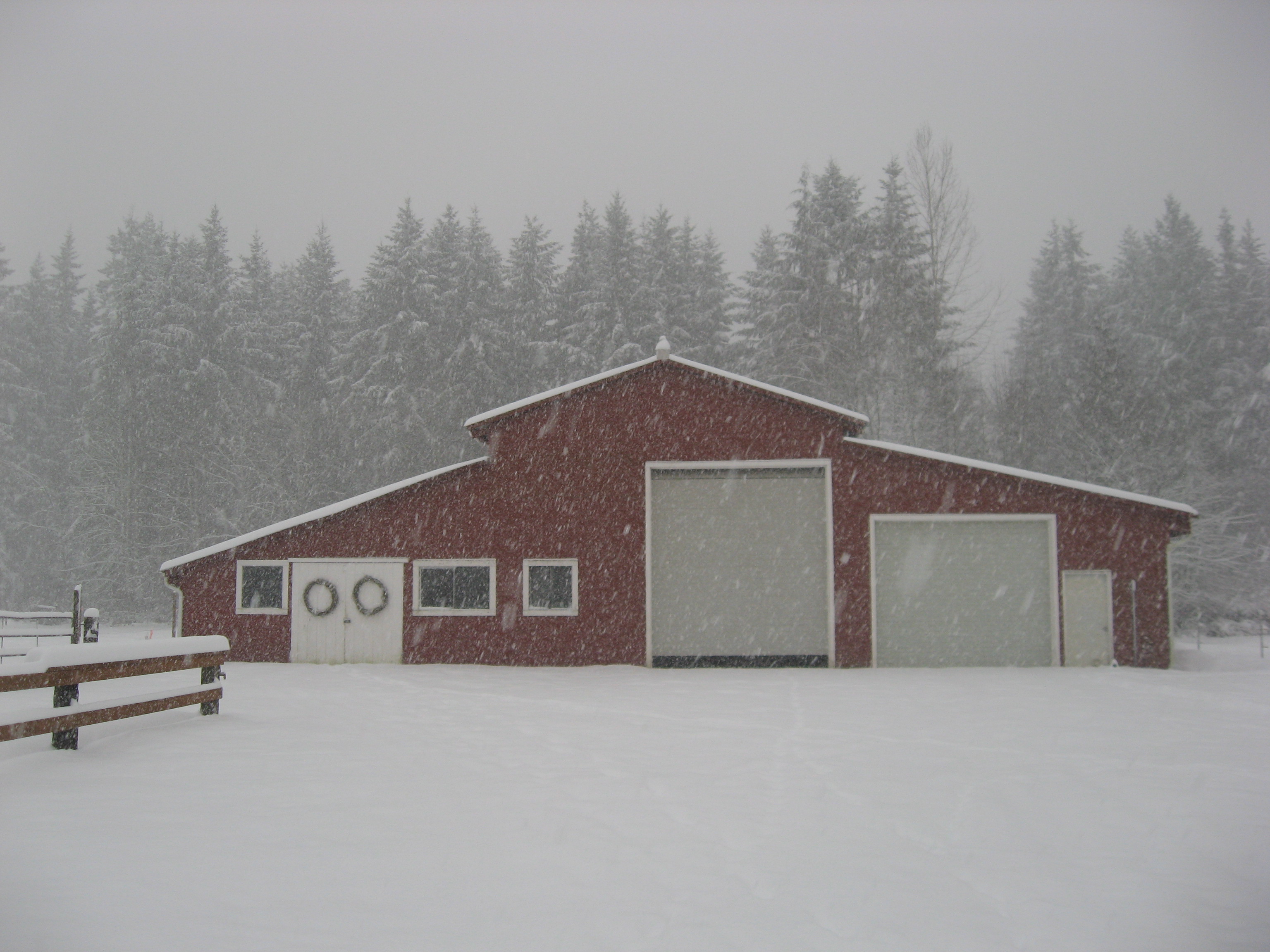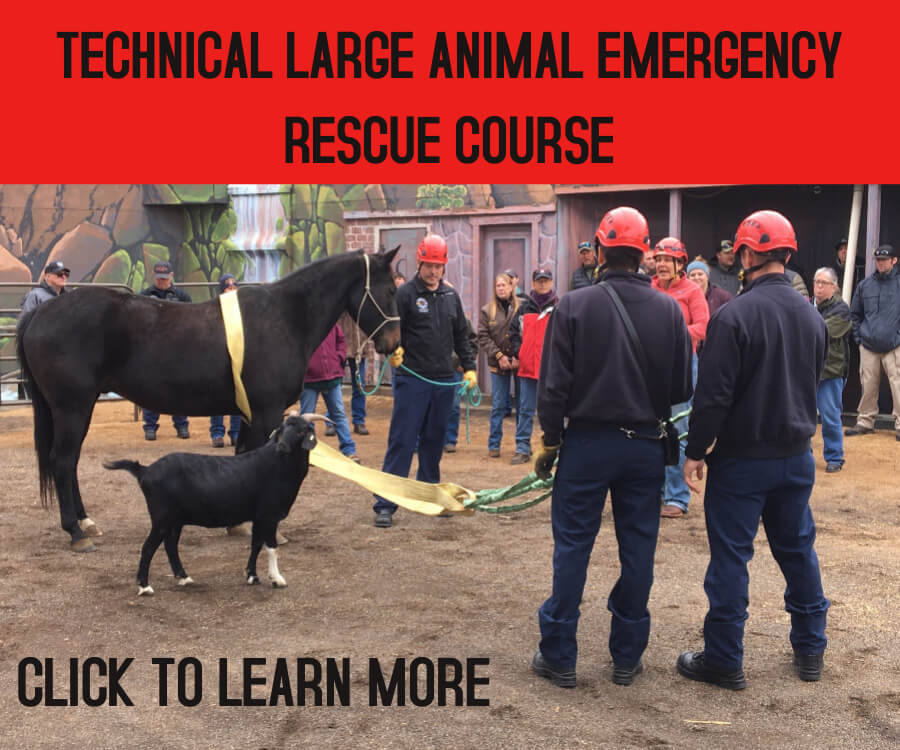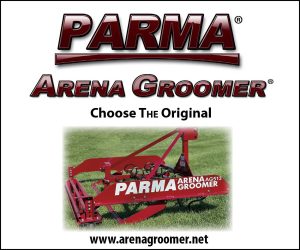Three Key Factors to Keep Horses Healthy in Inclement Weather
by Eleanor Blazer
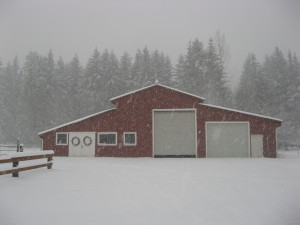
Baby, it’s cold outside!
Caring for your horse in the winter can be a challenge, but there are steps you can take to help keep him healthy and comfortable. Of course, nutrition, shelter and basic health care are important year-round, but during the cold winter months they become critical.
Nutrition
Water is the most important nutrient in a horse’s diet. Many colic cases occur due to dehydration. Fresh, clean water, accessible 24 hours a day, is mandatory. Heated water buckets, stock tank de-icers or heated automatic waterers help ensure water remains unfrozen. These units must be cleaned and monitored daily. Remember, water and electricity do not mix. Follow installation instructions and install ground-fault circuit interrupter (GFI/GFCI) outlets. In addition, have a backup water source in case exposed water lines freeze.
Do not expect a horse to eat snow or break through the ice and remain healthy. Water intake will not be adequate and the temperature of the body’s core will be lowered. The average adult horse at rest requires about 10 gallons of water per day. Many horses will not drink cold water. The preferred temperature is 40 degrees Fahrenheit (4.4 C). Research has shown that if a horse has a bucket of warm water and one that is cold, it will drink the cold water first, but more warm water will be consumed if that is all that is available.
Horses are grazers. Access to plenty of good, clean, nutritional forage (hay) is mandatory. The digestion of fiber in the hindgut generates heat and helps keep the horse warm in cold weather. In a perfect world horses would have grass hay available free choice at all times. If that is not possible, at least a minimum of 1.5% – 2.0% of the body weight should be fed each day. This amount will vary with individual horses and hay quality.
A balanced commercial feed that complements the forage and meets the horse’s nutritional requirements should be offered. The owner or barn manager should evaluate each individual horse with the following in mind:
• Is the horse lacking protein? Signs include poor muscle tone over the back, shoulders and loin area. Poor hoof quality and hair coat are also symptoms of protein deficiency. Chose a commercial mix that provides good quality protein.
• Is the horse receiving enough calories? All horses should have some fat covering the rib area. Close your eyes and run your hand over his ribs to feel how much pressure is necessary in order to feel ribs? If you can feel the ribs without applying any pressure he needs calories. Add a balanced commercial mix designed for the age, health and activity level of the horse and make sure to follow the feeding directions. If you can’t feel ribs and want to decrease calories make sure you don’t short him on protein, vitamins and minerals.
• Is the horse a pregnant mare, a stallion ready to enter breeding season, a young horse starting training, a senior having a weight problem, or a horse with health problems? Hay alone will usually not provide all the nutrition needed for these individuals. Vitamin, mineral and energy requirements must be considered for each horse.
A common misconception about diet is increasing or adding corn thinking it will keep the horse warm. Corn will increase digestible energy in the diet, but will not generate internal heat. Instead, offer more hay.
Shelter
Most healthy horses will be fine if they are provided a windbreak and dry, clean place to stand and lie down. Horses with special concerns such as seniors, foals or compromised health will need individual care. Observe the horse: Is he shivering? Is he standing by himself with a depressed attitude and no interest in his surroundings? This horse needs immediate attention. Do not expect a horse to stand ankle deep in mud and remain healthy.
A barn provides good shelter, but horses kept in air-tight stalls can develop respiratory problems. Make sure the stalls are well-ventilated and that ammonia from urine does not build up. Avoid drafts. Blanketed horses need to be checked daily. Make sure the blankets are dry, clean and fit properly. Also make sure the horse is not sweating.
Basic Health Care
Deworming. It is important to prepare horses for the stress of winter by maintaining a good deworming program. A horse supporting a large worm count will have trouble remaining healthy during the winter months.
Hoof care. It is easy to ignore the care of the hooves during the cold and often muddy winter season. However, always remember the truth of “no hoof, no horse.” Horses need regular farrier work and the hooves should be kept clean. A horse standing in a wet dirty stall is prone to thrush and other hoof problems.
Vaccinations. A good vaccination program is important. If a horse becomes sick with a disease that could have been prevented through vaccination the recovery time can be longer during the stress of the winter months. It also means added work for the caretaker, who will already be struggling with routine chores during inclement weather.
Exercise. Horses need routine exercise to maintain good digestive movement, good mental attitude and muscle tone. If the horse becomes sweaty and hot be sure to cool him out properly.
Do not neglect your horse during winter. Yes, it is dark, cold and windy, but your horse depends on you.
For information about caring for and feeding horses take the online courses “Stable Management” and “Nutrition for Performance Horses” taught by Eleanor Blazer. Earn certification or work toward a Bachelor of Science degree in equine studies. Go to www.horsecoursesonline.com for more information. Visit Eleanor’s web site at www.thewayofhorses.com
Published in January 2015 Issue
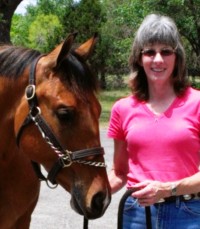
Eleanor Blazer was raised training and caring for horses. She learned to ride and care for the horses her family bought and sold. Many of these horses required improved nutrition when they arrived for training. Eleanor’s experience and research has benefited both horses and horse lovers in the field of equine nutrition. An equine nutrition consultant, based in Bulverde, Texas, she keeps busy doing equine nutrition consultations, conducting seminars, and speaking to youth groups about horse care and nutrition. Eleanor is the author of the syndicated column The Way of Horses. She has more than 20 years experience helping and being a mentor to those wanting to know how to provide the very best care and nutrition for our special friend – the horse.


